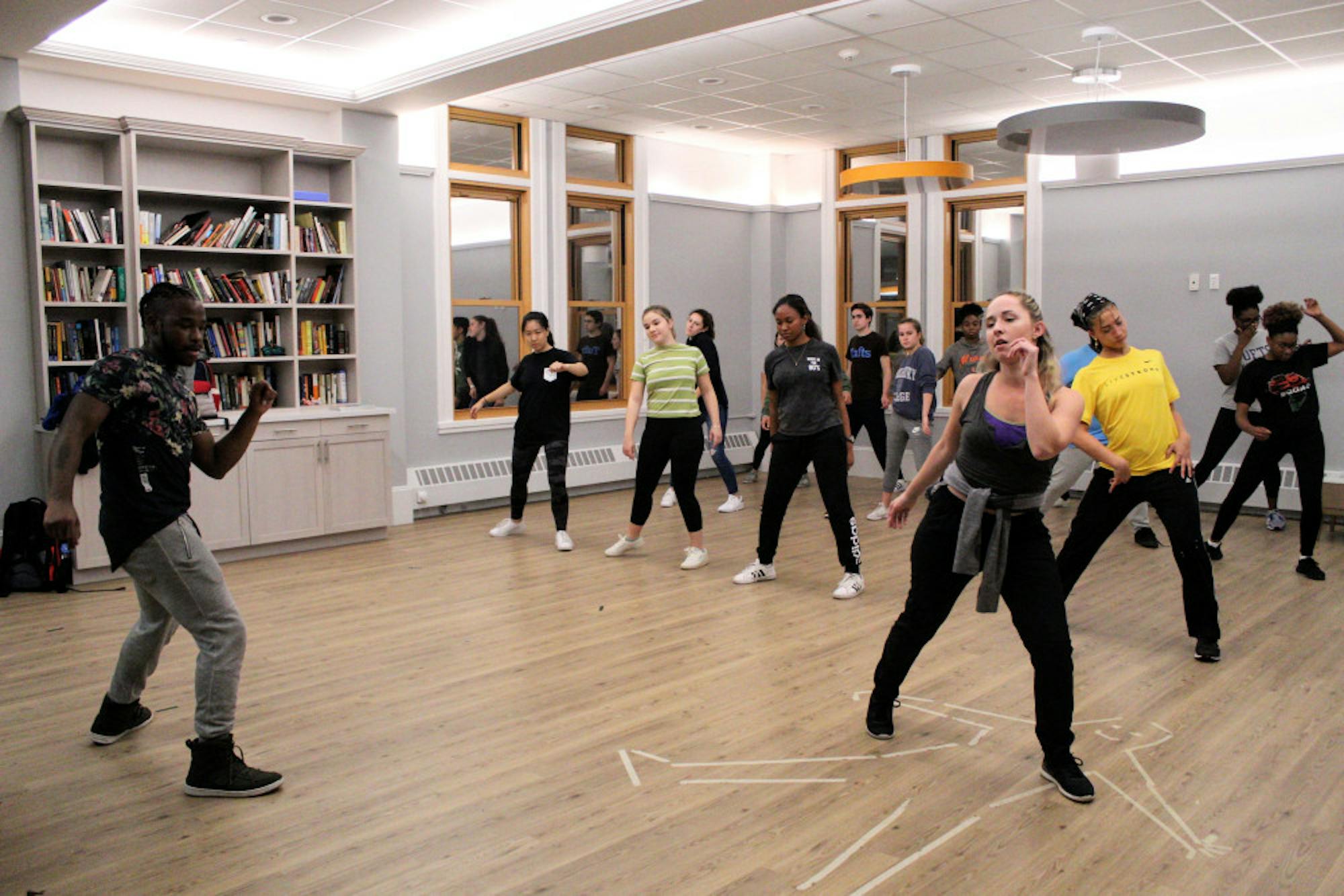A series of seven free dance workshops called “Black Brown Queer Dance” led by Boston-based artists will be offered weekly during the month of October in the Metcalf Hall common room, according to Kareem Khubchandani, Mellon Bridge Assistant Professor in the Department of Theatre, Dance, and Performance Studies and the Women's, Gender, and Sexuality Studies program.
Khubchandani, who organized the workshops, explained that the goal is to celebrate dance from underrepresented and marginalized communities.
“I wanted to create an environment in which people can see what I study and specifically frame my research in dances emerging from communities of color. So, I wanted to create this black, brown queer dance,” Khubchandani, who is also the scholar-in-residence for Metcalf Hall, said. “For those people who don’t often feel they are represented on this campus, [I hope they will] come in and know that dance from their community is being celebrated and shared.”
The dances offered cover a wide range of styles, from Brazilian zouk to hip-hop. The next class will be tonight at 7:30 p.m., led by Chris Suharlim and entitled "Sassy Hip Hop." "Waacking," "Dancehall Workout" and "Gender Free Ballroom" will be offered on Oct. 22, Oct. 23 and Oct. 29, respectively.
Khubchandani said that he aims for the workshops help break the gender binary in dance.
“I think the gender binary is really enforced in dance spaces a lot of the time. I have two instructors that are teaching partner dance, but are teaching it without gender,” he said.
Khubchandani explained that the dance workshops can also be an opportunity for students to see the diverse communities present in Boston.
“I am hoping that students would go out and learn [at dance workshops offered in the greater Boston community],” he said. “Boston can feel very white and very straight. To see there are all these people in the community that are around, [I think the programming] is an intention [for students] to see that there are other social worlds and performance worlds that are really inclusive."
Director of the LGBT Center Hope Freeman shared the significance of the dance workshops being offered on campus.
“I think that dance workshops being offered are so important. We are able to enjoy dance in all its forms, but rarely get a chance to reflect on the histories and how they came to be a part of our everyday lives,” Freeman told the Daily in an email. “I think that [the workshops] will really support the Tufts community in understanding the roots of many popular styles of dance.”
Khubchandani explained that he found and selected the dance instructors leading the "Black Brown Queer Dance" workshops through his personal connections.
“I have performed in the Boston community, in drag and burlesque, and I have also taken classes in the Boston area. ... Some of the instructors are people who I performed with or classes I have taken. They are all people who I know personally, or have gotten to know personally," he said. “I just reached out to all these people I know and trust, and [the instructors] are all getting paid, because I think it is important to pay artists as well.”
The Scholars-in-Residence program is providing funding for this workshop series, according to Director of Residential Life and Learning Joshua Hartman.
“In addition to the clear benefit of a diverse and vibrant program like this, the dance workshop series will also allow students to connect with each other and with a faculty member outside of the traditional classroom setting, which is a key goal of the SIR program,” Hartman told the Daily in an email.
Khubchandani emphasized how these workshops will enable him and attendees to create relationships and build community outside of a classroom setting.
“This is an opportunity to get to know more students on campus," he said. "If I am living on campus [as a scholar-in-residence], I want to know the breadth of who is here in this community."
Khubchandani added that the dance workshops are for students of all experience levels.
“I'm hoping that provides room for people to dance for people who don't really consider themselves dancers," he said. "[It’s] really important to me that students can try out dance, and maybe take a dance class."
Laporsha Dees, a first-year dancer who attended the hip-hop workshop led by Brian Mirage on Monday night, said that the workshop was enjoyable and should be offered more often.
“Where I am from, there are not a lot of hip-hop classes offered,” Dees said. “[Or] they are offered and they're very expensive … for this to be free ... is really helpful.”
Rodney White, also a first-year, said that the workshop was “eye-opening.”
“I never took a dance class so this was like one of the first times I actually tried doing choreography ... it is eye-opening [to realize] that I could do it," White said.
'Black Brown Queer Dance' workshops celebrate dance from marginalized communities

Boston-based dance instructor Brian Mirage leads Tufts students in a hip-hop workshop part of the 'Black Brown Queer Dance' series in the Metcalf Hall common room on Oct. 15.





